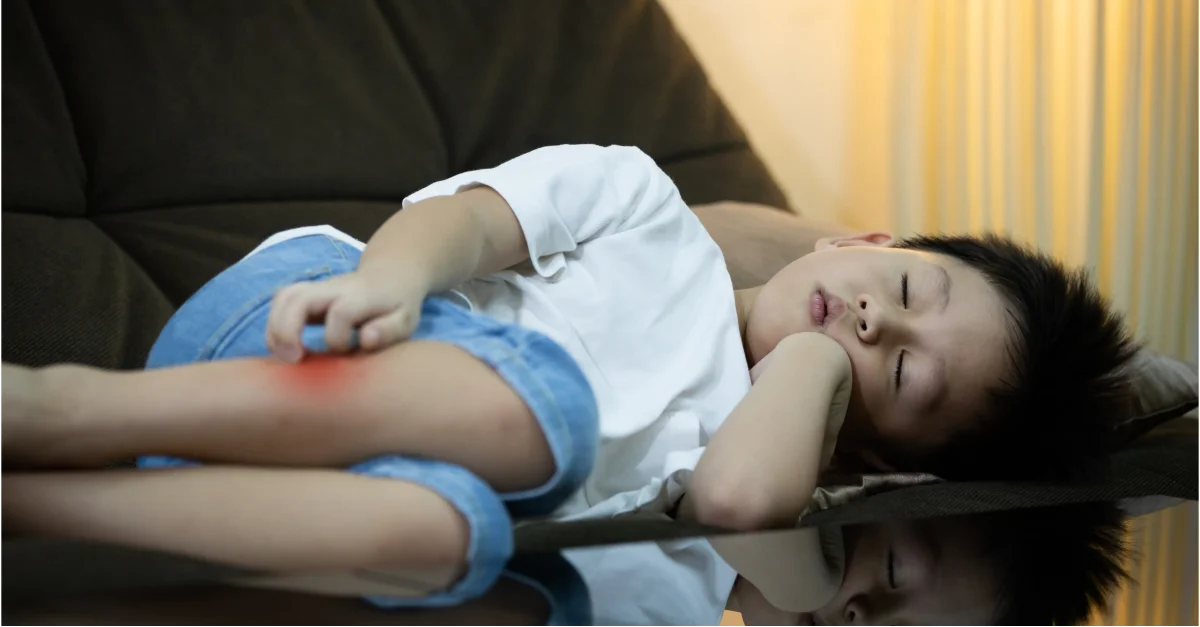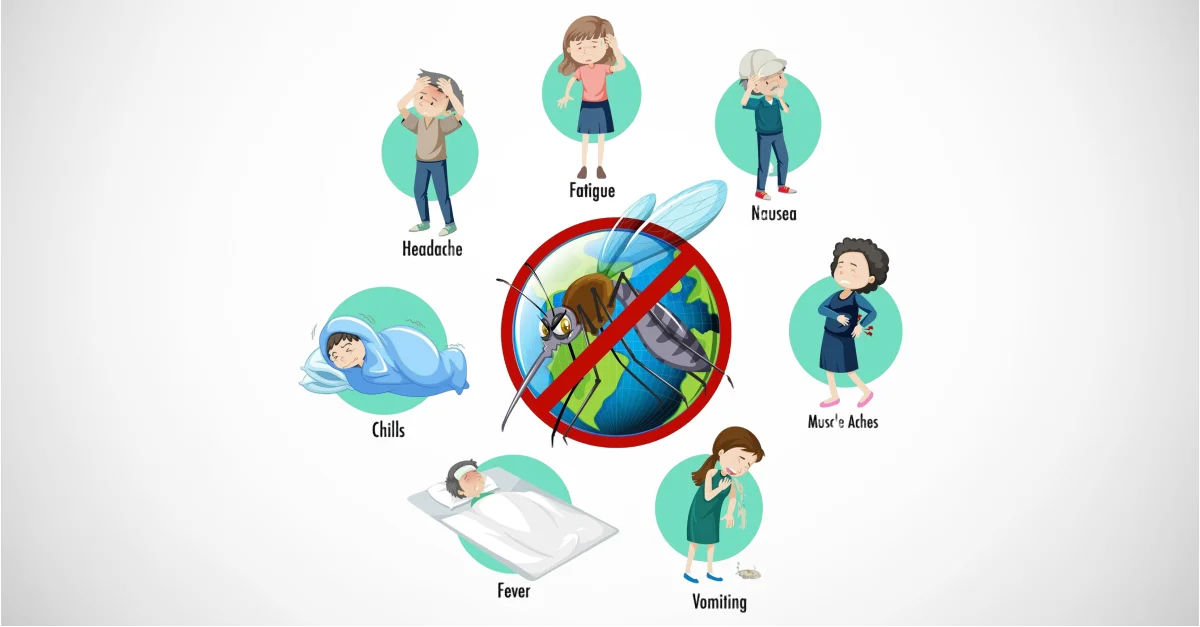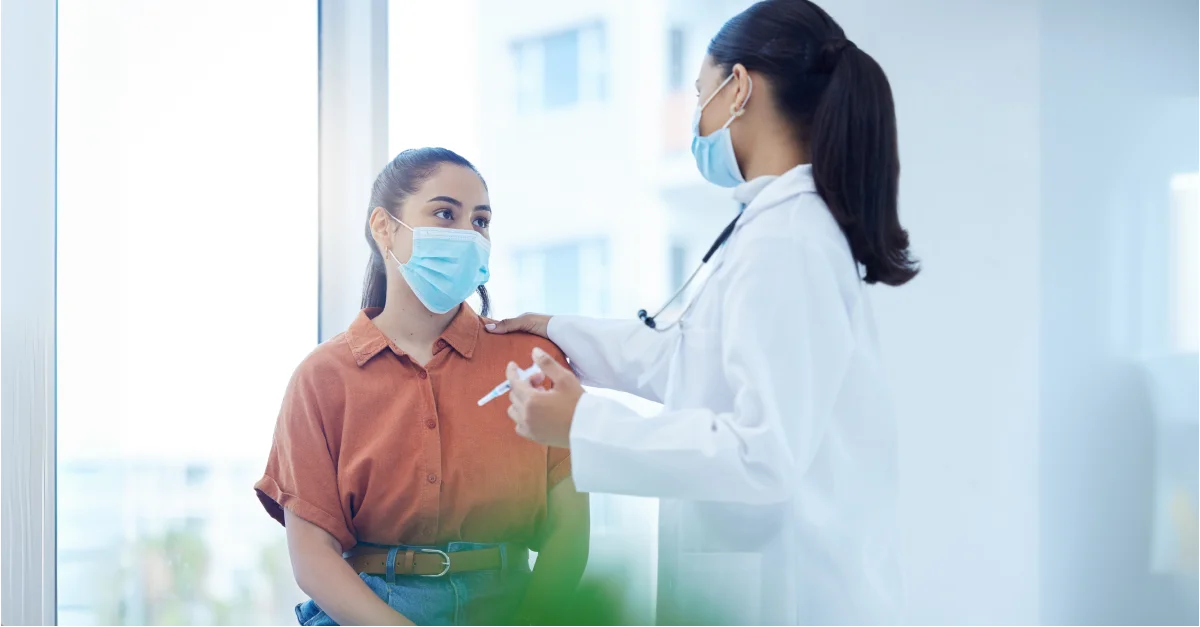Malaria is a serious illness that is caused by parasites belonging to the genus Plasmodium which includes Plasmodium falciparum and Plasmodium virax. It is estimated that the World Health Organization (WHO) declared 241 million malaria cases and 627,000 deaths in 2020. The disease spreads by the bite of afected female Anopheles mosquitoes.
Although malaria is preventable and treatable, its effect for vulnerable groups, like children and pregnant women, as well as travelers who have no immunity prior to the disease, is still important. Mumbai is a city with a large populations and subtropical climate is a region where malaria outbreaks are a constant issue.
Symptoms and Progression of Malaria
The symptoms of malaria are often similar to the symptoms of other illnesses that cause fever, which makes the diagnosis early crucial. The symptoms that are not specific to malaria include chills, fever headache, fatigue joint pain nausea, vomiting and abdominal pain. As the infection worsens the febrile episodes can be distinct, that are based on what is known as the Plasmodium type:
- P. vivax as well as P. falciparum: Febrile attacks can be experienced every day.
- Severe malaria may cause seizures, altered consciousness the kidneys failing, extreme anemia as well as cerebral malaria which can affect the brain.
In severe cases, you need medical attention since they could lead to complications such as organ failure or lower blood sugar levels particularly for high-risk groups such as pregnant women and children.
The Role of Specialists in Malaria Treatment
An specialist in malaria from Mumbai is a key role in addressing and managing malaria cases efficiently. Specialists are skilled in diagnosing the illness, identifying the particular parasite and adjusting treatment plans for the individual’s needs.
They not only with malaria treatment but also teach patients about preventive measures as well as lifestyle modifications to lower the chance of re-infection. In cities like Mumbai where the threat of malaria continues to increase because of environmental and climatic factors, consulting with a specialist will ensure the most effective results.
Diagnostic Tools for Malaria
Early and accurate detection of malaria is essential in reducing morbidity and death. Methods for diagnosing malaria include:
- Microscopy:- Examining stained blood smears of smears under microscope can be considered the gold standard. It can identify the species and measures the parasite burden.
- Rapid Diagnostic Tests (RDTs) :- These tests can detect antibodies or antigens within a matter of minutes, which makes them useful in situations where microscopy is not available.
If you suspect malaria, however the initial smear results are negative, a follow-up scan is advised every 48-72 hours to ensure confirmation.
Treatment and Management of Malaria
The treatment options depend on the severity and type of the disease:
- Easy to treat Malaria :- The combination of artemisinin and treatment (ACT) is the most commonly used treatment in India because of the widespread resistance to chloroquine.
- Severe Malaria :- Intracavenous Artesunate is the initial treatment that ensures quick parasite elimination.
- Preventing Relapses :- Primaquine is utilized to prevent relapses of P. vivax patients and decrease the transmission of P. falciparum.
In addition to medical treatments Hydration, as well as supportive care are essential in reducing the symptoms and aiding in recovering.
Preventing Malaria in Endemic Areas
Prevention is the keystone to malaria prevention. The most effective strategies are:
- Use of Insecticide-treated Nets (LLINs) :- Pyrethroid-treated nets offer protection in sleeping and do not have any known toxic effects on humans.
- Indoor Residual Sprayed (IRS) :- Insecticides applied to walls of homes and ceilings help reduce mosquito populations.
- Protect yourself from the sun :- Wearing long-sleeved garments and applying repellents to mosquitoes and keeping away from stagnant water around your home could reduce exposure.
- The Vaccination :- While India has not yet received an official malaria vaccine the WHO-approved RTS S vaccine has been hailed as a positive step to control malaria globally.
Living in Malaria-Prone Areas
For people living in areas that are malaria-prone such as Mumbai making sure to take precautions to prevent the spread of malaria. Collaboration with local health care providers and seeking advice from an malaria specialist in Mumbai can assist you to keep abreast of the most recent advances in the fight against malaria and treatment.
Here are some helpful suggestions:
- Use mosquito nets regularly and repellents.
- Clean your surroundings to keep mosquito breeding areas out of your home.
- Be aware of the symptoms of malaria and seek medical assistance immediately when you notice any.
Specialists also stress community involvement like participating in spraying programmes and promoting awareness to combat the spread of malaria.
Challenges in Malaria Control
Despite advancements, several challenges remain:
- drug resistance widespread resistance to chloroquine as well as other antimalarials have led to the necessity of ACTs.
- Relapses Viral infections may recur and make long-term prevention essential.
- Vector Control adaptation of mosquitoes to insecticides highlights the need for novel ways of controlling them.
Research into insecticides that are systemic, better diagnostic tools, and the development of new vaccines is aimed at solving these challenges and further advance the fight against malaria.
Conclusion
Malaria is still an enormous health problem especially in areas like Mumbai. However, with the knowledge of an expert malaria infection specialist in mumbai and timely detection and diagnosis and effective treatment are all within reach. Through combining preventive measures and expert care, communities and individuals can be able to fight the illness and lessen its effects.
Make the first step towards an uninvolved life. Consult a specialist today to get prompt and proper treatment. We can all secure ourselves and help in the fight against malaria around the world.






